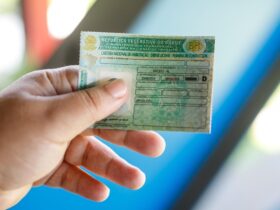On the day, 80 years ago, Winston Churchill announced the end of World War II in Europe, Donald Trump and Keir Starmer declared the end of the trade war between the United States and Great Britain. This was the first agreement since the US president imposed a series of heavy tariffs on half the world.
And perhaps not the last: “We will reach an agreement with Europe,” the US president assured, as his administration clashes with China this weekend in Switzerland. But Ursula von der Leyen, who has drawn up a list of compensatory tariffs on US products worth some $100 billion that will go into effect if negotiations fail, has already made it clear that she will only see Trump with a deal in his pocket.
Von der Leyen: Trump will only come with a tariff agreement in his pocket
“Regarding countermeasures, we have been transparent from the beginning. We have always said that we prefer a negotiated solution, but that we were willing to act to protect our interests. I had good conversations with President Trump, both by phone and at the Pope’s funeral in Rome, but I think it is important that if I go to the White House, it is only with a package of measures to discuss,” declared the President of the European Commission. In other words, “with a solution we can agree on,” she added.
Merz: Agreements with the US are only reached by Europe, not by individual member states.
Meanwhile, the German chancellor, who met with von der Leyen, issued a warning to those countries that (as the League in Italy has repeatedly urged) might think they can negotiate unilaterally, that is, reach agreements outside the EU, with the US.
“I congratulated Trump on the agreement reached with the UK, but I also told him that it is not possible to ‘reach separate agreements’ with individual EU countries, as we only have the power to negotiate jointly on trade,” Friedrich Merz stated.
Trump calls for an 80% reduction in tariffs on China.
Meanwhile, on the eve of the meetings with China, Trump is calling for a reduction in tariffs on Beijing to 80%. Bloomberg claims the target would be below 60%, while, according to well-informed sources speaking to the Washington Post, the administration could even reach 54-50%.
On the other hand, Istat warns that there are just over 23,000 companies vulnerable to exports in Italy, of which almost 3,300 have US demand (2022 data). Of these, evaluating liquidity, profitability, and capital structure, 10.8% are considered at risk and 9.2% at high risk, which represents a total of one vulnerable company in five, or 4,600.











Leave a Reply